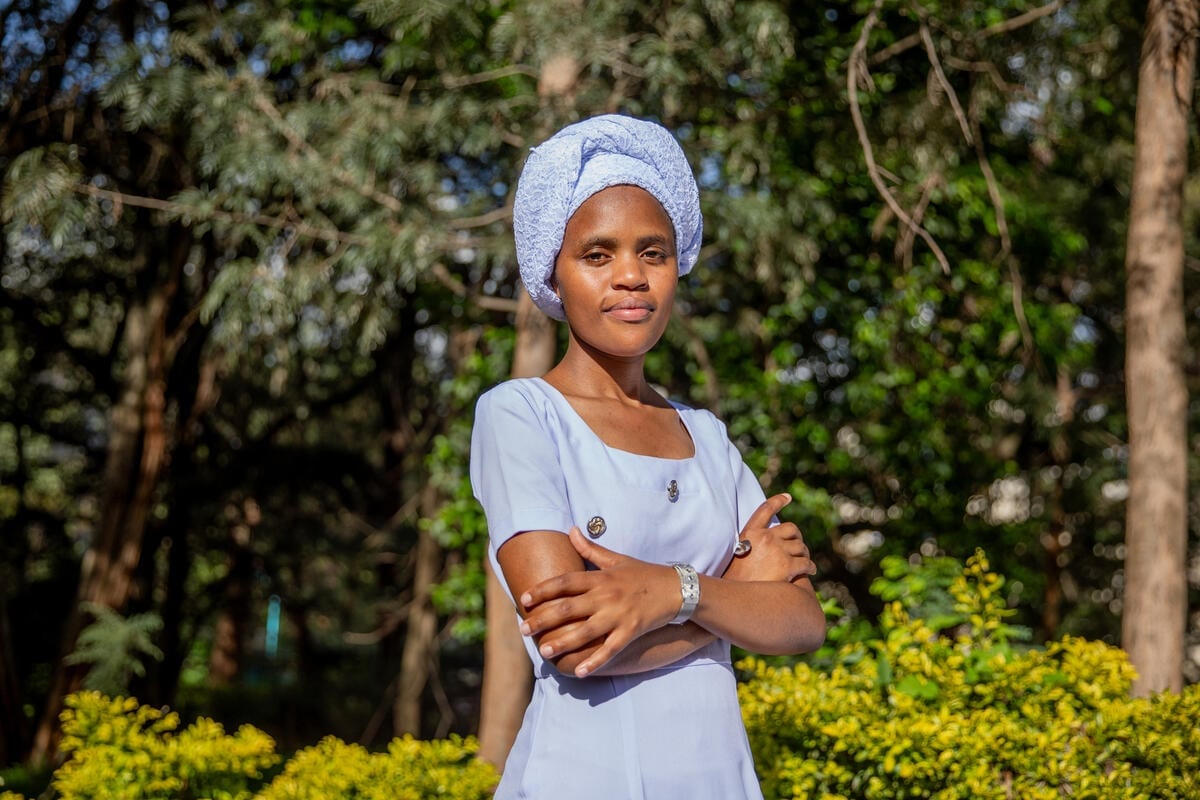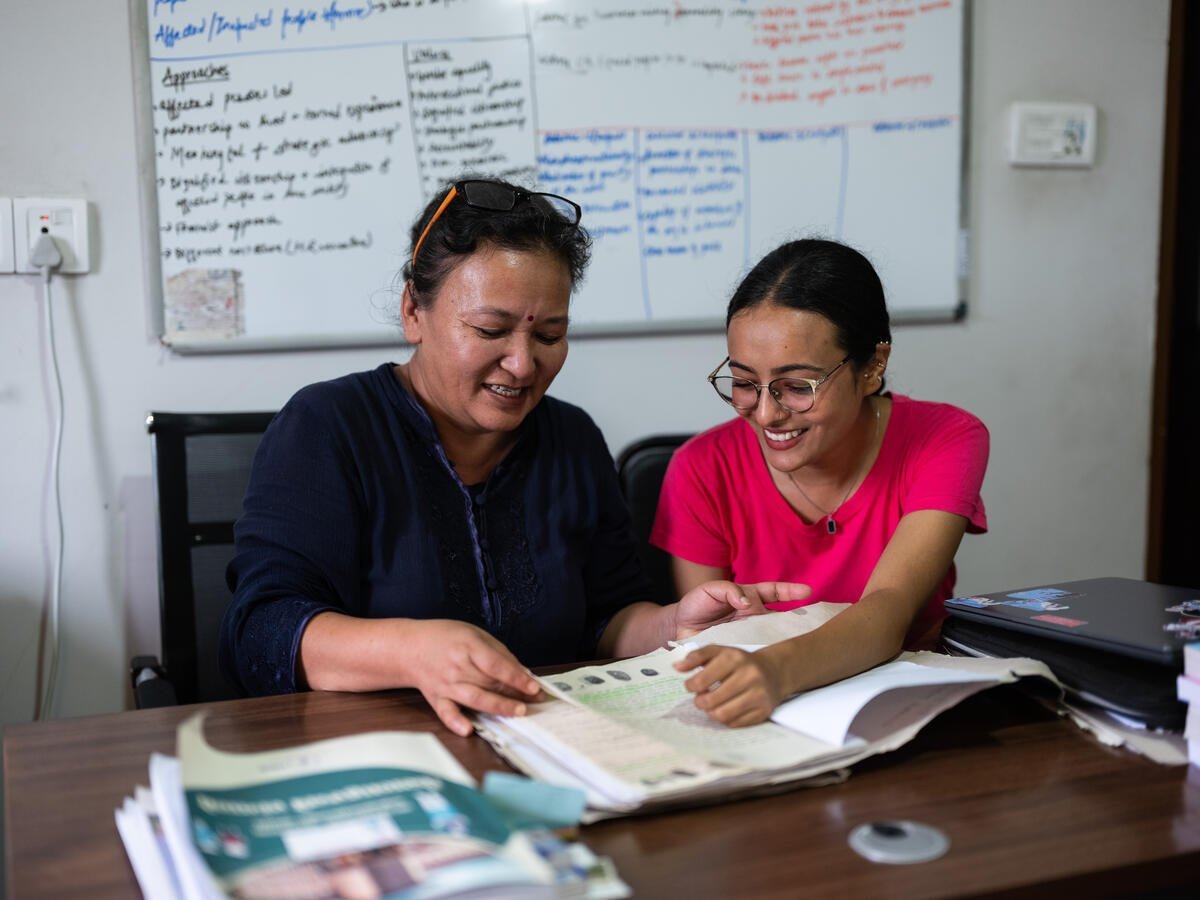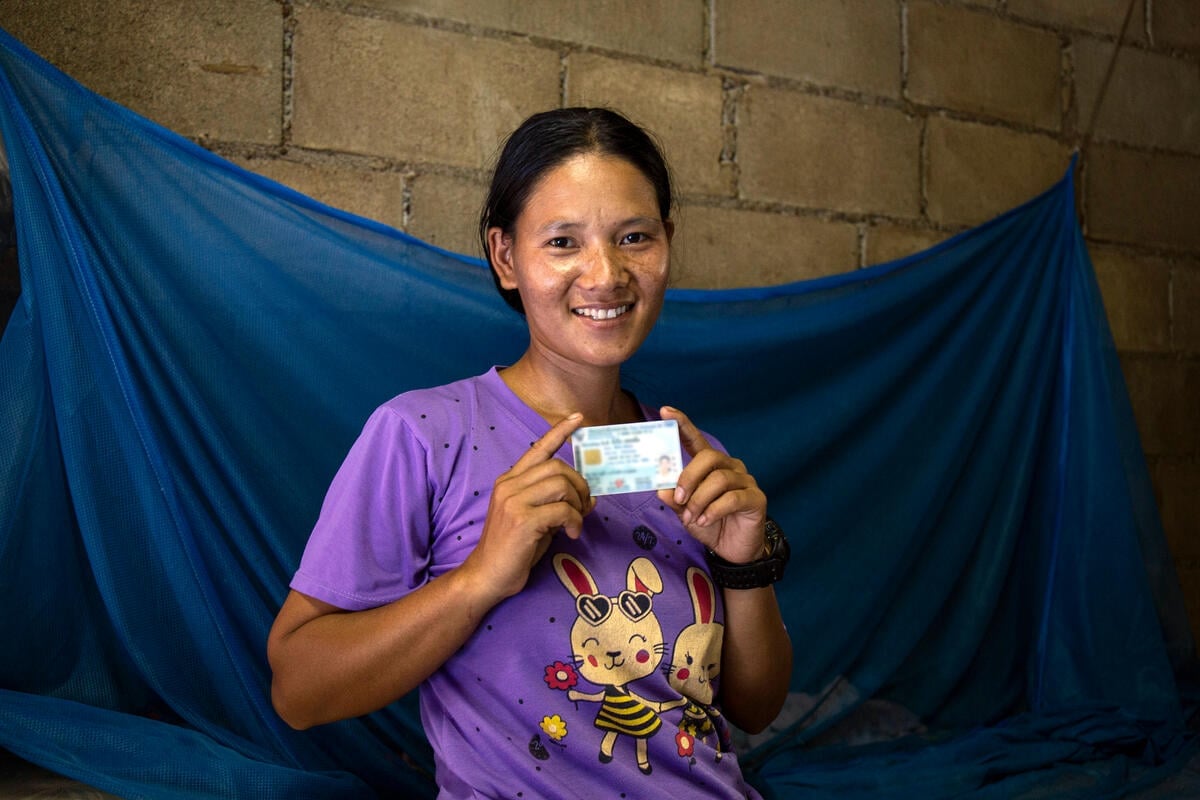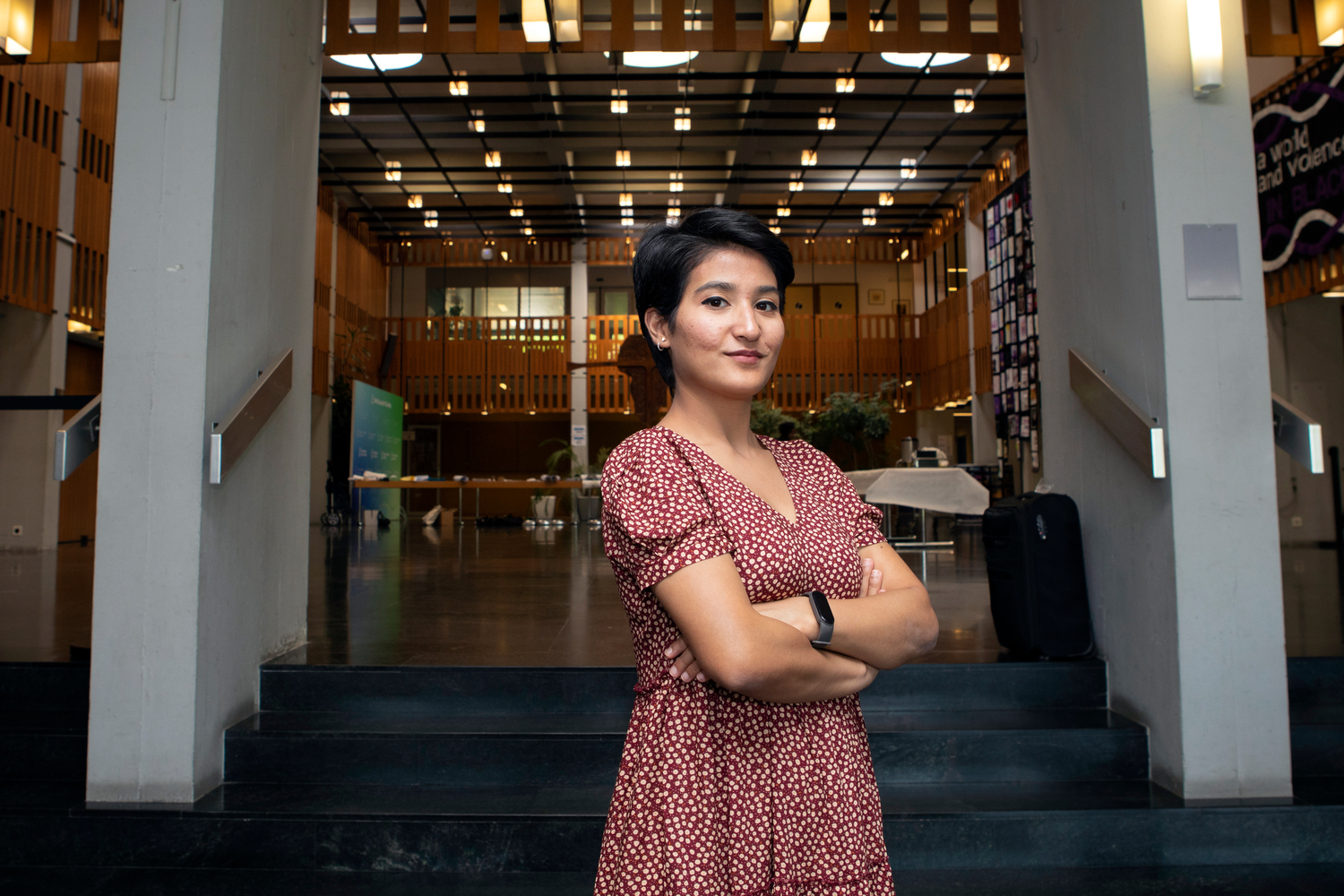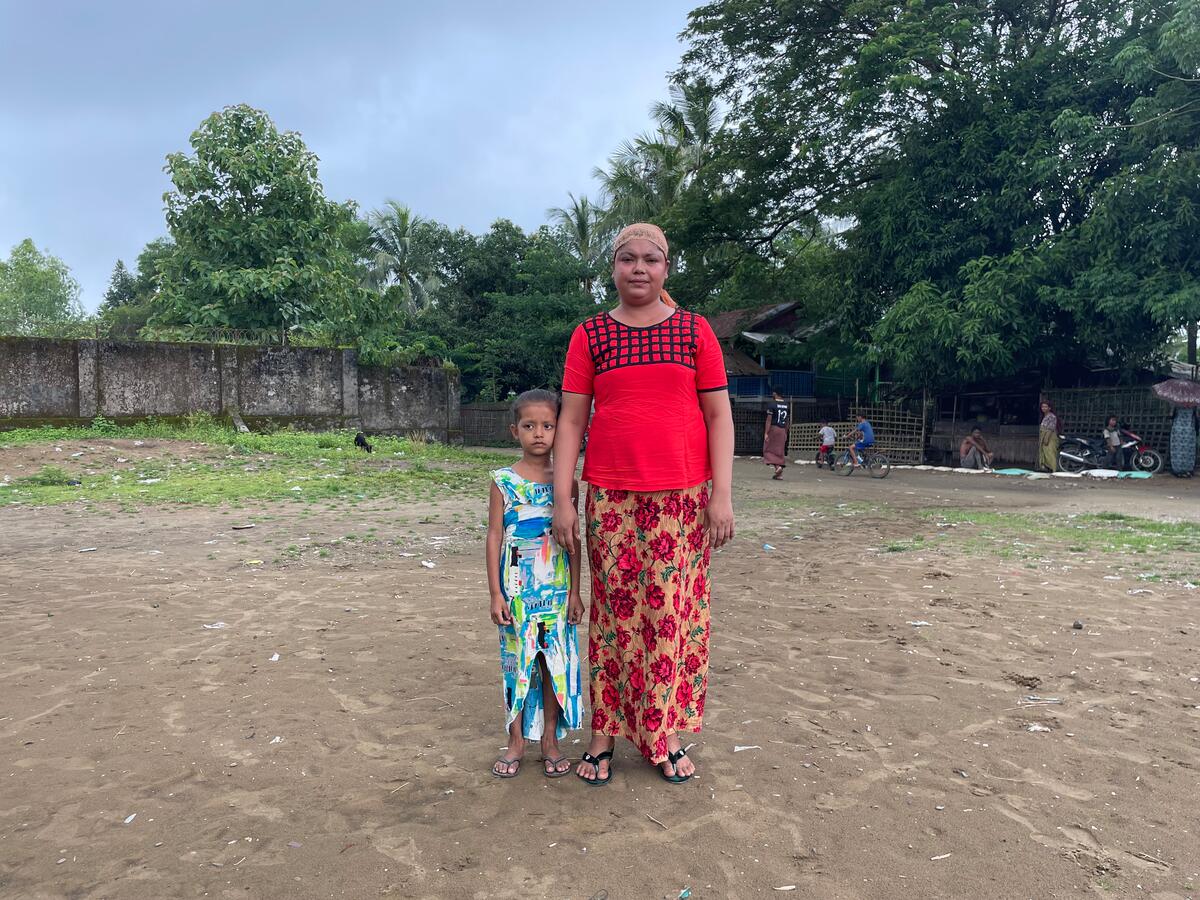How small Moldova ran one of Europe's largest campaigns to prevent and address statelessness
How small Moldova ran one of Europe's largest campaigns to prevent and address statelessness

CHISINAU, MOLDOVA, Aug 17 (UNHCR) - Maria Gandrabura, 74, was desperate. Suddenly she could not withdraw her meagre pension of 1000 Moldovan Lei (50 USD).
The authorities refused to replace her old Soviet ID card. Without citizenship rights, she felt left behind in her humble farm house at the end of a dirt road where she grows grapes, cherries and vegetables.
"I had nowhere else to go," the widow said in tears. Today, she has a Moldovan ID card and her pension back - thanks to a UNHCR-supported campaign that helped prevent and address the statelessness of 212,000 people.
Until late 2012, 21 years after the break-up of the Soviet Union, over 220,000 people in the Republic of Moldova were holding expired Soviet ID cards.
Like Maria Gandrabura, with the expired documents, they did not have access to all basic citizenship rights such as to vote or to social assistance.
The Government of this independent country between Ukraine and Romania repeatedly called upon the population to get Moldovan IDs, but only when it launched a campaign offering the new IDs for free in 2014, did they start to see success. Many elderly people live on 1000 Moldovan Lei (some 50 USD) a month and did not want to spend the equivalent of up to 10 US Dollars on a new ID.
It became one of Europe´s largest campaigns to prevent and address statelessness since the turn of the century. Between January 2013 and June 2015 alone, a total of 212,000 people benefitted - one out of 20 Moldovan citizens.
"Political will was key," said UNHCR Protection Coordinator Sergiu Gaina: "and this can be replicated in other situations". As part of its #IBelong Campaign to End Statelessness by 2024, UNHCR recently helped arrange a study visit by Armenian officials and NGO representatives to learn from Moldova's success story.
With support from UNHCR, all pensioners in Moldova received an information leaflet. The authorities sent mobile teams to those who were unable to come to the Passport Office. UNHCR's partner, the Legal Center of Advocates (LCA), established a hotline for free legal information. Sergiu Gaina, at the time with LCA, picked up the phone when Gandrabura´s family called. He helped the old lady who had been born in Belarus get the confirmation by the Belarusian authorities that she was not considered a national of that state.
However, the Moldovan Passport Office refused to issue a new Moldovan ID to Maria Gandrabura based on an internal instruction requiring a particular stamp. That came as a blow for the widow: "I thought: I am a Moldovan woman, this is my country, my five children and four grand-children are here", she says. "I thought I lost everything. I was crying", she whispers and breaks out in tears again.
That was not the only surprise: "In November 2014, I could not vote for Parliament. I had been voting all the time. I was really upset", says the 74-year old.
Initially, she thought it useless to argue the case in court, but after receiving legal advice from LCA, the lady finally appealed the decision taken by the Passport Office. After five months of uncertainty, she won her case. The court did not consider the stamp a requirement as it was not in the law.
"My first reaction was: Thank God and all those people that helped me", said Gandrabura. "I made a cross and then I went to get my pension and off to the market to buy everything I needed. I was so happy." She recovered several months of pension and social benefits.
Poor pensioners did not want to pay for a new ID. Others may have hung on to the Soviet ID because they wanted to be prepared for an uncertain future of this small country.
Iulian Popov, Head of the Statelessness and Information Unit at the Ministry of Interior, can understand why Soviet IDs had such a long life: "If you have a Moldovan ID card, you identify with Moldova, but with a Soviet ID you can identify with a huge power."
By Roland Schönbauer in Chisinau, Moldova


